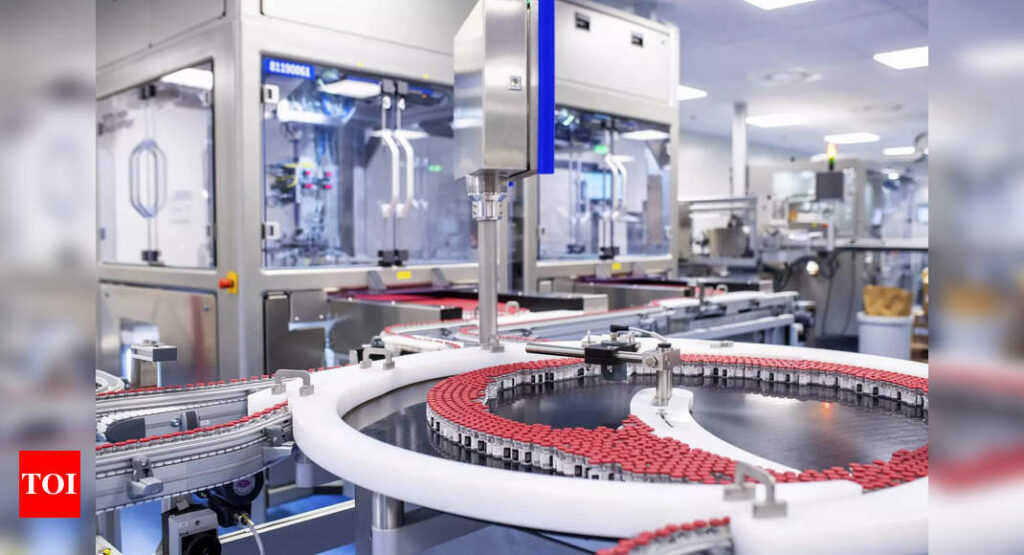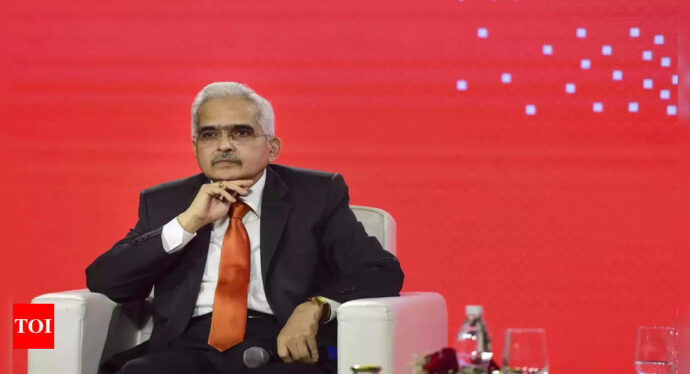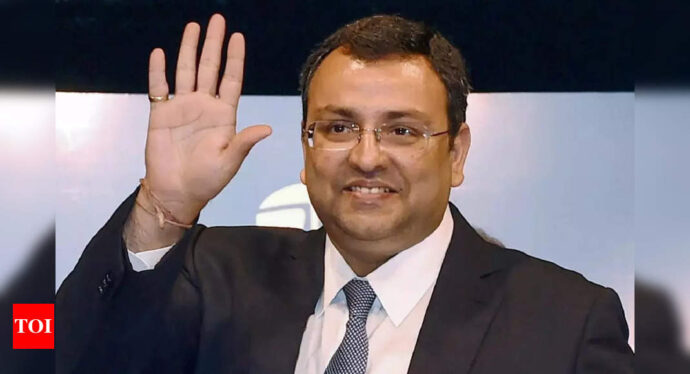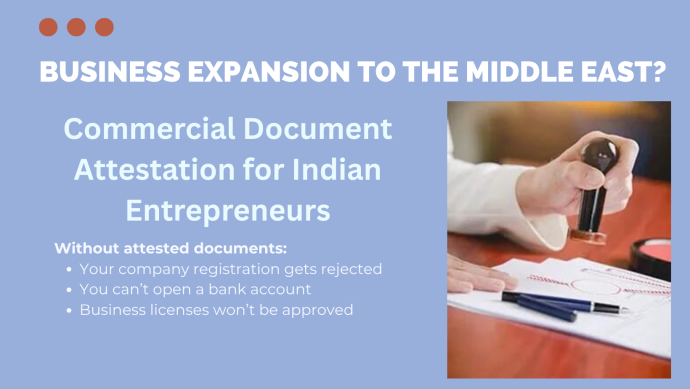Covid vaccines patent waiver in first WTO deal in 7 years – Times of India

[ad_1]
GENEVA: WTO members on Friday agreed to a first deal in nearly seven years, including a limited patent waiver for Covid-19 vaccines and an agreement to discipline fisheries subsidy, after over five days of intense negotiations, which saw ministers and ambassadors from over 100 countries spend the last two nights inside the multilateral body’s office on the shores of Lake Geneva.
WTO members approved over six papers around dawn Friday as they sought to reinvigorate the moribund organisation at a time of increasing protectionisim and a trend towrds deglobalisation and when the global economy is hit by fresh uncertainty due to war in Ukraine.
India listed several gains from the meeting and sought to position itself as a key proponent of several of the moves.
“We have delivered on nearly 100% of the directions given by PM Narendra Modi. There is no issue on which we have to return with any worry… There are no negative outcomes on agriculture issues. Similarly, fishermen had some concern, there is no limitation on the government or on India,” commerce and industry minister Piyush Goyal told reporters.
The agreement on fisheries subsidies, the first new treaty agreed to by trade ministers in almost nine years, is a compromise deal, dropping several contentious provisions that were not acceptable to several countries, including India that did not want their ability to provide subsidies curtailed in any manner. The agreement was agreed to after the Africa, Caribbean and Pacific Group blocked the plan for several hours.
WTO’s first agreement to regulate trade to ensure sustainability has been hanging fire since the start of the millennium and will limit the ability of members to support illegal, unregulated and unreported fishing.
If it took over 20 years for the membership to agree on fisheries subsidy, the developed countries dragged their feet on a patent waiver for Covid-19 vaccines for 20 months, before finally agreeing to provide partial relief to countries that are still facing supply challenges, who can now authorise a waiver. In case of drugs and diagnostics, WTO members will decide on extending the benefits after six months, amid severe criticism of the package by civil society groups.
There was also a political declaration on the response to the pandemic, which can be used as the template for future pandemics too, while the developed countries extracted an assurance that there will be no export restrictions for supplies to the World Food Programme.
And, India agreed to extend the moratorium on e-commerce, which helps companies avoid paying customs duty on electronic transmission of goods and services, until March 2024, in what may be the last such exercise.
Goyal as well as WTO chief Ngozi Okonjo-Iweala described the outcome of the ministerial meeting as unprecedented.
The Indian minister said the decisions were a boost to multilateralism given that this was the first ministerial conference in five years and came amid the economic challenges in the backdrop of the pandemic and the Ukraine war.
“What more can we expect. All negotiating goals met. Without spoiling relationships. If this is not stupendous, nothing else is… India’s image transformed from being a deal breaker to deal maker, something unthinkable a year ago. We changed the narrative and controlled it well from beginning to end. The nation’s image in the world community has risen phenomenally. We have done India proud,” commerce secretary B V R Subrahmanyam wrote in a note to his team.
Yet, several of the issues, including India’s demand for a permanent solution to the peace clause on breaching the limit on public stockholding, as well as allowing government to government sale of grains from FCI stocks, could not be addressed.
Although a work programme to make WTO more contemporary has been put in place, members could not get the US to remove the roadblocks to restart the dispute settlement agency, a key element of the multilateral trade rules put in place in 1995.
WTO members approved over six papers around dawn Friday as they sought to reinvigorate the moribund organisation at a time of increasing protectionisim and a trend towrds deglobalisation and when the global economy is hit by fresh uncertainty due to war in Ukraine.
India listed several gains from the meeting and sought to position itself as a key proponent of several of the moves.
“We have delivered on nearly 100% of the directions given by PM Narendra Modi. There is no issue on which we have to return with any worry… There are no negative outcomes on agriculture issues. Similarly, fishermen had some concern, there is no limitation on the government or on India,” commerce and industry minister Piyush Goyal told reporters.
The agreement on fisheries subsidies, the first new treaty agreed to by trade ministers in almost nine years, is a compromise deal, dropping several contentious provisions that were not acceptable to several countries, including India that did not want their ability to provide subsidies curtailed in any manner. The agreement was agreed to after the Africa, Caribbean and Pacific Group blocked the plan for several hours.
WTO’s first agreement to regulate trade to ensure sustainability has been hanging fire since the start of the millennium and will limit the ability of members to support illegal, unregulated and unreported fishing.
If it took over 20 years for the membership to agree on fisheries subsidy, the developed countries dragged their feet on a patent waiver for Covid-19 vaccines for 20 months, before finally agreeing to provide partial relief to countries that are still facing supply challenges, who can now authorise a waiver. In case of drugs and diagnostics, WTO members will decide on extending the benefits after six months, amid severe criticism of the package by civil society groups.
There was also a political declaration on the response to the pandemic, which can be used as the template for future pandemics too, while the developed countries extracted an assurance that there will be no export restrictions for supplies to the World Food Programme.
And, India agreed to extend the moratorium on e-commerce, which helps companies avoid paying customs duty on electronic transmission of goods and services, until March 2024, in what may be the last such exercise.
Goyal as well as WTO chief Ngozi Okonjo-Iweala described the outcome of the ministerial meeting as unprecedented.
The Indian minister said the decisions were a boost to multilateralism given that this was the first ministerial conference in five years and came amid the economic challenges in the backdrop of the pandemic and the Ukraine war.
“What more can we expect. All negotiating goals met. Without spoiling relationships. If this is not stupendous, nothing else is… India’s image transformed from being a deal breaker to deal maker, something unthinkable a year ago. We changed the narrative and controlled it well from beginning to end. The nation’s image in the world community has risen phenomenally. We have done India proud,” commerce secretary B V R Subrahmanyam wrote in a note to his team.
Yet, several of the issues, including India’s demand for a permanent solution to the peace clause on breaching the limit on public stockholding, as well as allowing government to government sale of grains from FCI stocks, could not be addressed.
Although a work programme to make WTO more contemporary has been put in place, members could not get the US to remove the roadblocks to restart the dispute settlement agency, a key element of the multilateral trade rules put in place in 1995.
[ad_2]
Source link







